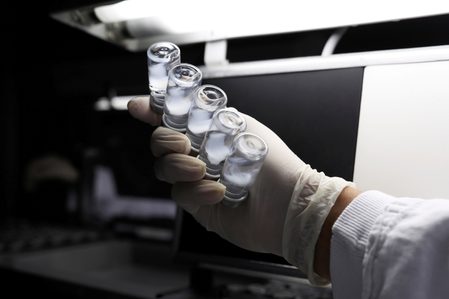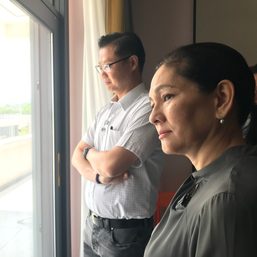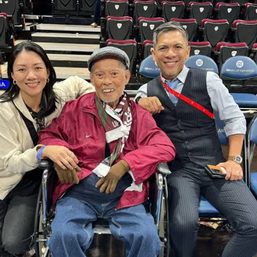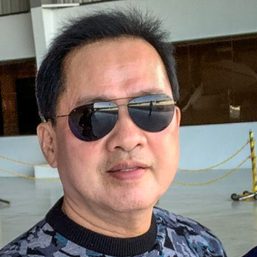SUMMARY
This is AI generated summarization, which may have errors. For context, always refer to the full article.

Senators spent hours of their second hearing Friday, January 15, on the Duterte government’s COVID-19 vaccination program, asking a series of questions scrutinizing the seeming “preference” of task force officials for vaccines developed by Chinese drug maker Sinovac.
Lawmakers pressed vaccine czar Carlito Galvez Jr to explain why the government signed an agreement to secure 25 million doses of Sinovac’s vaccine, considering that its Phase 3 trials were still being consolidated and the company had yet to secure emergency use approval (EUA) in the Philippines.
“Why did you conclude a contract of 25 million doses when it did not apply for an EUA with the FDA? You concluded a contract with Sinovac,” Senate President Vicente Sotto III said.
Senator Panfilo Lacson likewise echoed this and questioned why the government did not instead prioritize companies that had secured such emergency approval from both the Philippines and mature regulatory authorities abroad.
Galvez defended the government’s decision to hold negotiations with Sinovac, saying companies included in the country’s vaccine portfolio were endorsed by the country’s vaccine expert panel specially formed to assess COVID-19 vaccines.
Galvez said the government had been dealing with Sinovac ahead of the company’s moves to file an EUA in the Philippines as supplies of vaccines remain limited. Without a signed agreement, he added, “the 25 million (doses) will be gone.”
Galvez was referring to the term sheet he recently signed with Sinovac last January 13, which was needed to lock in logistics for a date of delivery and move on to securing an actual supply deal.
“There is still a very rigorous supply agreement that will be tackled in order to determine the term of payments and also the terms of delivery,” he added.
Galvez clarified negotiations were still ongoing and that no public funds have been spent yet for the purchase of Sinovac’s vaccine.
Health officials involved in the vaccine program earlier explained that with limited global supply of vaccines, it was necessary for government to simultaneously pursue negotiations with vaccine companies while emergency approval was being considered.
Sinovac submitted an application for emergency use authorization with the Food and Drug Administration (FDA) last January 13, though FDA Director General Eric Domingo said the agency was waiting for phase 3 trial results before moving on to a full review.
‘No politics’ in vaccine procurement
During the hearing, Lacson also belied claims that the Senate’s hearing was “hurting” the government’s ongoing negotiations with vaccine companies.
In particular, Lacson called out Galvez for mentioning in a Zoom meeting that several senators – including himself, Senate Majority Leader Miguel Zubiri, and opposition Senator Francis Pangilinan – “demonized” vaccine developers during the hearing, “apparently referring to Sinovac.”
“It is indeed unfortunate that the Senate is being dragged as scapegoat by projecting the narrative that this inquiry is being used as an avenue for political agenda,” Lacson said.
Panglinan likewise denied claims the country’s vaccine procurement was being politicized with the hearing, saying lawmakers sought to clarify the government’s plan and assess its readiness.
Galvez did not directly address Lacson’s allegation but repeated that the government was negotiating with vaccine companies that allowed doses to be purchased at-cost. He said this included Sinovac, which was offering its vaccines at a not-for-profit price.
In recent weeks, Senators have zoned in on the prices of vaccines being eyed by government, noting that Sinovac’s cost of P1,443 per dose was higher than others whose prices range from P1,779 (Moderna) to P192 (AstraZeneca). But Galvez said these are market prices different from what is being discussed during negotiations.
Health officials have been unable to disclose the exact price involved in negotiations as this was covered by confidentiality agreements, but Galvez gave assurances this would be disclosed later on when deals were finalized.
Assuring the public, he said, “We will be very, very diligent…. We assure the public it will undergo strict regulatory requirements…. I can assure you that the price will be close to our neighbors.”
Meanwhile, Senate Minority leader Franklin Drilon asserted that the chamber’s hearing was not meant to politicize vaccine procurement, but rather ensure that it remains transparent and inspires confidence in the government’s choices.
“You cannot impose confidence Mr Secretary, you must earn it,” Drilon said.
Efficacy in question
Throughout the hearing, senators also repeatedly questioned confusing preliminary findings from Phase 3 trial results of Sinovac’s vaccine, putting into focus the government’s decision to include it among vaccines being considered for use.
Data from Sinovac’s Phase 3 trials conducted in Indonesia, Turkey, Brazil, and China have shown 4 different efficacy results, ranging from a low of about 50.4% to a high of some 90%, leaving experts with more questions on the performance of the vaccine.
Galvez said the FDA was reviewing this and that only vaccines deemed to be safe and effective for Filipinos will be given emergency approval in the Philippines.
Health experts likewise urged caution when assessing vaccine efficacy findings. Vaccine expert Lulu Bravo said complete data from trials were needed, including number of participants, design, and other factors that could affect efficacy in different countries. – Rappler.com
Add a comment
How does this make you feel?






There are no comments yet. Add your comment to start the conversation.